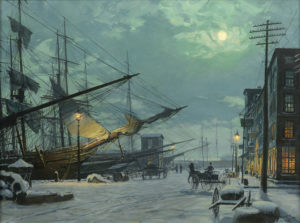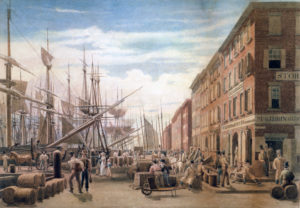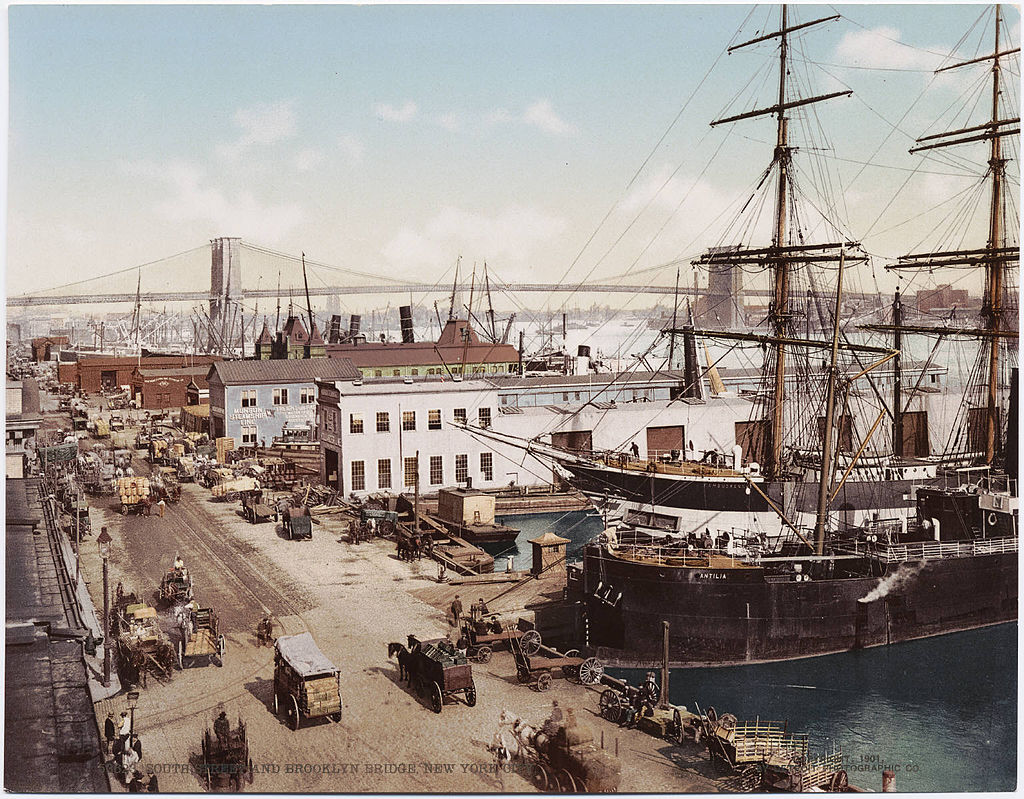This one may be a bit of a stretch for Architecture in Art, perhaps it’s time to come up with a better name for this series. Nevertheless, this area is one of the most historically important places in New York City so it’s more than worthy of your attention. This week, we’re taking a look at the South Street Seaport, through the work of John Stobart in South Street, New York, 1895.
We’re going way back for this one, before New York was even New York. The first pier appeared here in 1625 as part of the Dutch West India Co.; at the time, it was known as New Amsterdam – a Dutch colony. Back then, the shoreline was three blocks west. But due to the naturally shallow water and increasing size of ships, a decision was made in the late 1600s to build retaining walls, which would raise the water level – the walls were essentially landfills filled with excrement, dead animals, sunken ships and muck from the bottom of the river. Is this a good time to mention the East River isn’t even technically a river? I digress. Much of that landfill we now call the Lower East Side… by the late 1600s, the shoreline was Water Street and by the early 1800s, land was built out to South Street.
Through the 1700s it was the focal point of trade from England, though that was obviously interrupted during the American Revolution. The port recovered quickly after the war, and New York was equipped with the country’s most developed trading port.
In 1784, the first independent American ship sailed to China and returned with tea, porcelain and other goods, marking the first international US trade relations. Then in 1818, the first regular trans-Atlantic travel was established from Liverpool, England to the ‘Port of New York’. This port was truly the reason New York became one of the centers for world trade.



